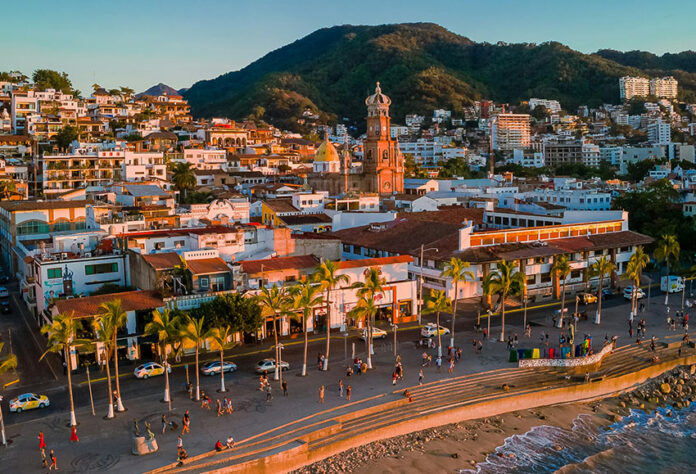Foreign visitors traveling to the popular beach destination of Puerto Vallarta on Mexico’s Pacific Coast will soon be required to pay a tourist fee under a controversial new law recently approved by Jalisco’s Congress.
Deputy Gabriela Cárdenas from the Movimiento Ciudadano (MC) party and president of the Finance Committee said that the collected funds will be allocated to a trust fund for infrastructure projects to “dignify the port of Puerto Vallarta.” These projects will include improvements to streets, public spaces, plazas and the tourist strip.
The new tax exempts foreigners residing in Puerto Vallarta, foreign tourists under 14, people with disabilities, tourist guides, tour operators, airline and cruise ship crew, and workers in the tourism industry.
Estimates suggest that Puerto Vallarta will collect between 300 and 500 million pesos (US $14 to $24 million) of funds from the new tax.
Deputy Yussara Canales of the Green Party (PVEM), who represents Puerto Vallarta in Jalisco’s Congress, questioned the proposal. She argued that no state has the faculty to impose taxes on transit through the territory and even deemed it “unconstitutional.”
“[This is] a tax on the transit of people, disguised as a fee for the use of services, welfare and municipal public spaces,” she said.

Indeed, article 117, fraction V of the Mexican Constitution says that “under no circumstances,” can states tax the “free transit of people or things that cross its territory.”
Currently, each foreign tourist entering Mexico pays a fee of 717 pesos (US $35) to transit or remain in the country for up to 180 days, without permission to engage in paid activities. This fee, dubbed “Non-Resident Tax,” (DNR) can only be collected by the federal government.
Until 2023, the Federal Tax Law (LFD) allowed 20% of the amount collected by DNR to be allocated to the National Migration Institute to provide migration services. The remaining 80% was allocated to the country’s planning, studies, infrastructure and tourism projects.
Since 2024, the funds collected from the DNR have been allocated to infrastructure works by the army, such as the Maya Train.
The new LFD also requires every cruise ship passenger docking at Mexico’s ports to pay US $42 passenger fee starting July 1. The DNR didn’t previously apply to cruise ship passengers stopping in Mexican ports, as they would, on average, stay in the country for less than eight hours.
With reports from El Informador and Crónicas Jalisco
Editor’s note: After publication, the mayor of Puerto Vallarta said this new state fee will be voluntary. The state of Jalisco’s announcement, however made no mention of the payment being voluntary. Instead, it said: “With the goal of improving infrastructure and maintaining the quality of public services, the creation of a new tax on lodging for foreigners has been approved for the municipality of Puerto Vallarta.”
